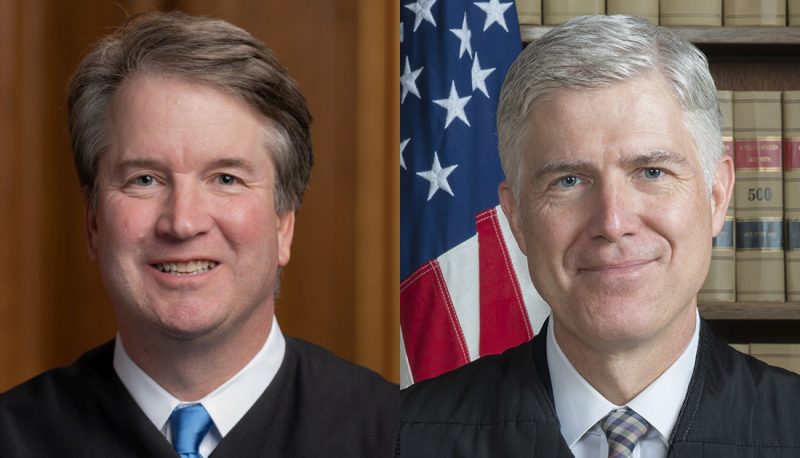“Confirmed Judges, Confirmed Fears” is a blog series documenting the harmful impact of President Trump’s judges on Americans’ rights and liberties. Cases in the series can be found by issue and by judge at this link.
Trump justices Brett Kavanaugh and Neil Gorsuch cast the deciding votes to effectively immunize U.S. Border Patrol agents from any responsibility for shooting across the U.S. border and killing people on the other side, even with no justification. Justice Ruth Bader Ginsburg’s dissent for the four moderate justices pointed out that there was “no good reason” why the parents of the boy shot in this case “should face a closed courthouse door,” particularly in light of the numerous documented cases of abuse by border patrol agents. The February 2020 decision was in Hernandez v. Mesa.
15-year-old Sergio Hernandez was playing with friends in Mexico on an embankment that straddled the U.S.-Mexican border. Border Patrol agent Jesus Mesa was on U.S. territory and shot across the border, killing Hernandez, claiming that the boys were throwing rocks and refused to stop. U.S. authorities agreed there was no evidence that Hernandez threw anything at the agent, but they took no action and refused to extradite the agent to Mexico, where prosecutors had charged him with murder. This occurred even though the agent’s conduct violated instructions from his office.
Hernandez’s parents then filed suit against the agent, claiming the killing violated the U.S. Constitution. This was based on the 50-year-old Bivens decision of the Supreme Court, which gives people the right to sue federal officials directly under the Constitution for intentional misconduct. In this case, the family contended, the unreasonable use of excessive force by a “rogue” border agent violated the Fourth and Fifth Amendments, in the same way federal law enforcement officers violate the Constitution if they improperly shoot people inside the U.S.
But the Hernandez family’s claims were dismissed without even a trial by lower federal courts, which ruled that Bivens should not apply to cross-border shootings. In a 5-4 decision joined by Justices Gorsuch and Kavanaugh, the Supreme Court agreed. Even though Justice Alito’s decision acknowledged that the case was “tragic,” he asserted that applying Bivens to such cross-border misconduct could have a “potential effect on foreign relations.” Justice Gorsuch joined a concurring opinion by Justice Thomas that wanted to go even further, suggesting that the Court should “consider dismantling the Bivens doctrine altogether.”
Writing for the four moderate justices, Justice Ginsburg strongly dissented. As she explained, the Court had previously ruled that “[u]sing lethal force” against someone who “poses no immediate threat to the officer” or others is improper and should allow a trial under Bivens, and the agent himself conceded that he could have been held liable if the bullet had hit Hernandez while he was “running up or down the United States side of the embankment.” The boy’s “location at the precise moment the bullet landed,” she went on, “should not matter one whit,” especially since the agent was clearly inside the U.S. when he unjustifiably shot Hernandez. The family had no “recourse to alternative remedies,” and the place where the bullet struck is irrelevant to achieving the primary purpose of Bivens to “deter” improper conduct by federal officials.
Justice Ginsburg specifically rejected the majority’s “potential effect on foreign relations” claim. The Hernandez family had brought a “civil damages” lawsuit against a “rogue” individual officer exactly as they would have if their son had been on the U.S. side of the border, and in no way challenged any “policies or policymakers.” Indeed, Ginsburg went on, refusing to allow an attempt to achieve some accountability for what happened could itself have a “potential effect on foreign relations,” as suggested by a brief filed by Mexico.
In conclusion, Ginsburg specifically noted that “the death of Hernandez is not an isolated incident,” and that there would be no recourse for other such killings and reports of Border Patrol misconduct under the majority’s ruling. As the lawyer who argued the case for the Hernandez family pointed out, the Constitution “does not stop at the border” and border agents “should not have immunity to fatally shoot” people on the other side, particularly in light of the Trump administration’s “militarized rhetoric and policies targeting people at the border.” As a result of the votes by Kavanaugh and Gorsuch, however, even rogue border agents have precisely such immunity.

